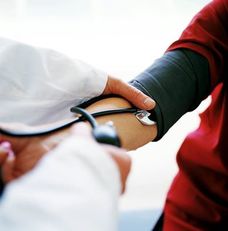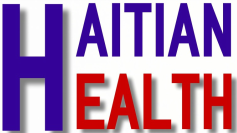 Based on the latest statistics, Haitians comprise the “second largest black immigrant population” [1]. This ethnic group, like many other ethnic groups of people of African descent, are disproportionally affected by high blood pressure in the United States. Hypertension is not only a priority, but also a major contributor of health disparity in Haitian communities [1,2]. As reported in several studies, there is a prevailing mismanagement of this condition by many community members who end up experiencing high morbidity and mortality rates. According to researchers, the main reasons for these findings are of behavioral and environmental natures [1,2].
Some Haitians report that they resort to herbal remedies either as stand-alone methods of treatment or adjunctively to prescribed medications [1,2]. Among some Haitian descents, there is a clear “preference for traditional, cultural remedies…over traditional Western medicine” [2]. Another personal factor, albeit societal, that may contribute to the problematic of chronic disease mismanagement among some Haitians, especially hypertension, is the “fear of detainment and deportation” [2]. For the Haitians with illegal status, the risk of being caught outweighs the value of seeking help from health care professionals. Consequently, their health suffers. In addition to the aforementioned reasons, the environmental determinants of uncontrolled hypertension in some Haitians are many. Among the Haitians living in the United States, “22% have not completed high school” and some are only fluent in Creole [2]. The lack of instruction and or English literacy creates a barrier to access health care services and benefits. It also engenders a miscommunication between the provider and the Haitian patient, and an inadequate level of health literacy, which can influence the quality of care they are able to obtain for their chronic disease. Some authors also note that “one in five Haitians in the U.S. lives in poverty…and 30% lack health insurance” [2]. In the research studies, the participants incriminated their low socio-economic status and stress levels in their inability to adequately control their blood pressure [1,2]. These findings highlight the necessity for continuous and intensified collaboration between the professionals and members in the community to encourage the Haitians to improve their management of hypertension. In regards to the use of traditional medicines, Sanon, Mohammed, and McCullagh [1] concurred with Alen et al. [2] that the “providers need to inquire about these practices” to appropriately support the Haitians. The Haitians with illegal status should be convinced to reach out to the health professionals by the intermediate of their trusted church leaders, family members, and or opinion leaders in the community. The leaders in the community and the organizations advocating on behalf of the Haitian descents should increase their lobbying efforts at the local, state, and federal levels to normalize the immigration status of these individuals. Community health professionals, church leaders, leading organizations, and prominent members should reach out to the Haitian immigrants who are disadvantaged educationally and or economically to assist them in accessing and receiving the available and affordable health services that they need. Since faith-based organizations have been hailed through research studies “as ideal channels for reaching Haitian audiences” [2], as Sanon et al. [1] would agree, church leaders should receive training to have greater capacity to educate congregation members [2]; and promote exercising, healthy eating, and medication adherence by using adequate methodologies (e.g., the pulpit, videos, workshops, and potentially the web). The use of these avenues to promote better health would complement the current general use of media such as local radio stations [2]. These strategies would be vital not only to improve the health of the members in this community, but also contribute to the achievement of controlled blood pressure in 61.25% of the U.S. population, as intended in Healthy People 2020 [3]. References 1. Sanon, M. A., Mohammed, S. A., & McCullagh, M. C. (2014). Definition and management of hypertension among Haitian immigrants: A qualitative study. Journal of Health Care for the Poor and Underserved, 25.3(3), 1067-1078. doi: 10.1353/hpu.2014.0147 2. Allen, J. D., Mars, D. R., Tom. L., Apollon, G., Hilaire, D., Iralien, G…Zamor, R. (2013). Health beliefs, attitudes and service utilization among Haitians. Journal of Health Care for the Poor and Underserved, 24(1), 106-119. doi: 10.1353/hpu.2013.0015 3. U.S. Department of Health and Human Services, Healthy People 2020. Heart Disease and Stroke. (2014, October). Retrieved from: http://www.healthypeople.gov/2020/topics-objectives/topic/heart-disease-andstroke/objectives
2 Comments
Mickelder Kercy
8/31/2023 03:49:29 pm
I am glad you enjoyed reading it.
Reply
Leave a Reply. |
Mickelder Kercy, M.D. M.S.I learned about the art and science of medicine and was introduced to the community and population-based aspects of public health at the Université Notre Dame d'Haiti. My early practical interventions in the field of public health during medical residency in Haiti fostered my interest in pursuing additional academic training in public health. At Columbia University in the City of New York, I specialized in Public Health with a minor focus on Community Health Education. My special interest is in non-communicable chronic diseases, and the social-ecological approach to health education and promotion in secular and faith-based communities. Archives
October 2017
Categories
All
To subscribe to our blog and receive notifications of new posts by email
|


 RSS Feed
RSS Feed
